By Patrick Beesley
Recounts World War I intelligence operations of the British, shows how broken German codes were used to help control the shipping lanes, and identifies the events in which Naval Intelligence played a key role.
Naval Intelligence Professionals Bookshelf
A Recommended Reading List
Led by RADM Tom Brooks (Ret.) and ISCM Dave Mattingly (Ret.), NIP has constructed a list of books (fiction and non-fiction) which are considered to be “classics” in each of the intelligence disciplines.
The beginnings of this list are included below. The object is to list two or three of the best books in each discipline, and we anticipate that the list will undoubtedly change over time as the readership suggests books that they consider better than the ones on the current list.

SUBJECTS
- *MUST READ* (6)
- China (9)
- Counterintelligence (4)
- Cyber & Information Warfare (3)
- Fiction (5)
- Human Intelligence (HUMINT) (2)
- Intelligence Analysis/Indications and Warning (5)
- Intelligence and National Decision-making (5)
- Leadership (11)
- Naval Intelligence History (General) (9)
- Naval War College Digital Commons (3)
- Other Reading Lists/Key Resources (11)
- Special Operations / Counter Terrorism (3)
- WWI/WWII/Cold War (12)
*MUST READ* China Counterintelligence Cyber & Information Warfare Fiction Human Intelligence (HUMINT) Intelligence Analysis/Indications and Warning Intelligence and National Decision-making Leadership Naval Intelligence History (General) Naval War College Digital Commons Other Reading Lists/Key Resources Special Operations / Counter Terrorism WWI/WWII/Cold War
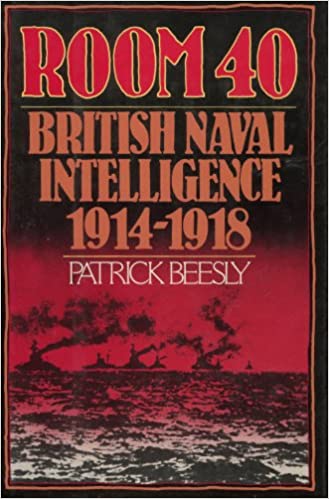
Room 40: British Naval Intelligence 1914-1918
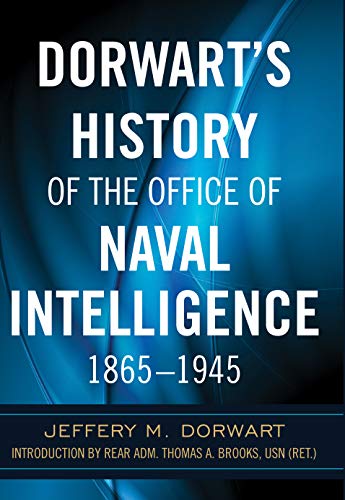
History of the Office of Naval Intelligence1865-1945
By Jeffrey Dorwarts
This is the history of the founding in 1882 and operation through two world wars of America's first permanent intelligence agency, the Office of Naval Intelligence. In this study Dr. Jeffery M. Dorwart shows how and why a tiny late 19th century U.S. Navy bureau created to collect information about foreign warship design became during two world wars a complex and sometimes troubled domestic and worldwide intelligence agency. More significantly, this history of O.N.I. demonstrates how the founders and first generations of U.S. naval officers trained to man warships at sea confronted what seemed an inherent dilemma in new missions that interfered with providing technical and operational information to their navy.
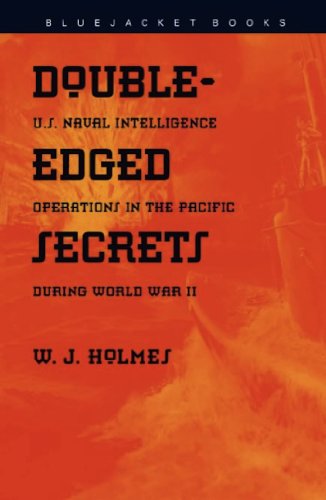
Double Edged Secrets
By Jasper Holmes
Assigned to the combat intelligence unit in Honolulu from June 1941 until the end of World War II, author W. J. Holmes was an important part of the naval organization that collected, analyzed, and disseminated intelligence information, and his compassionate understanding of the business of intelligence gathering is unique. Here, he not only captures the mood of the period but also gives rare insight into the problems and personalities involved. The reader comes to fully appreciate the painful moral dilemma faced daily by commanders in the Pacific once the Japanese naval codes were broken.
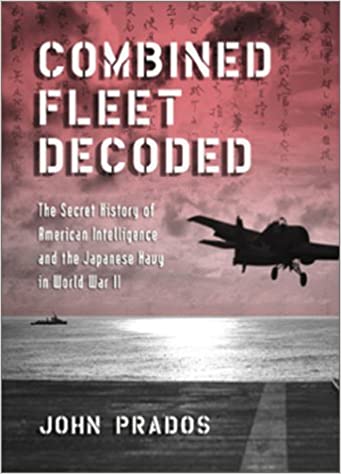
Combined Fleet Decoded
By John Prados
Written in the style of a thriller but solidly based on an array of sources, this study reinterprets the entire sea campaign in the Pacific, using intelligence as the missing key to the Allied success. It examines every aspect of the secret war of intelligence--from radio dispatches and espionage to vital information from prisoners and document translation--showing how U.S. intelligence outsmarted Japan nearly every step of the way. The resulting assessment is a virtual rewriting of history that challenges previous conceptions about the Pacific conflict.
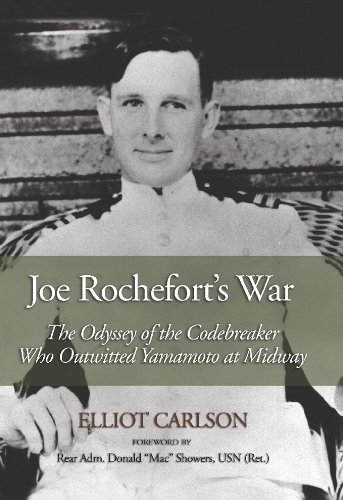
Joe Rochefort's War
By Elliot Carlson
Rochefort, Eddie Layton’s good friend, headed Station Hypo, the U.S. Navy’s signals monitoring and cryptographic intelligence unit at Pearl Harbor responsible for breaking the Japanese navy’s code before the Battle of Midway. The book provides insight to the development of cryptography and Naval Intelligence. It depicts the bitter fights and jealousies between Washington Navy bureaucrats who opposed Rochefort and forced Rochefort’s removal from Station Hypo and denied him the Distinguished Service Medal recommended by Admiral Nimitz. In capturing the interplay of policy and personality and the role played by politics at the highest levels of the Navy, Carlson reveals a side of the intelligence community seldom seen by outsiders.
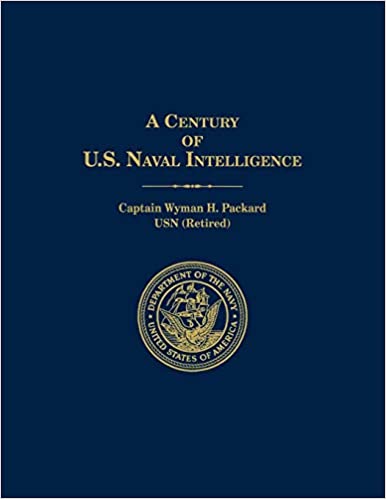
A Century of US Naval Intelligence
Edited by Captain Wyman Packard
Reprint of this scarce joint 1996 publication by the U.S. Naval Historical Center and the Office of Naval Intelligence. This comprehensive reference work is intended to provide intelligence professionals, scholars, and the general public with a detailed, topical accounting of the long and varied activities of U.S. Naval Intelligence. ill.
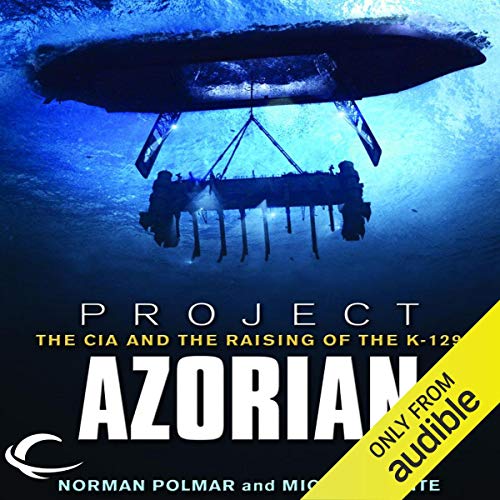
Project Azorian
By Polmar and White
The authentic story of the attempt to raise the Soviet Golf class SSB in the Pacific. Although it was a CIA operation, ONI played a very major part in the project.
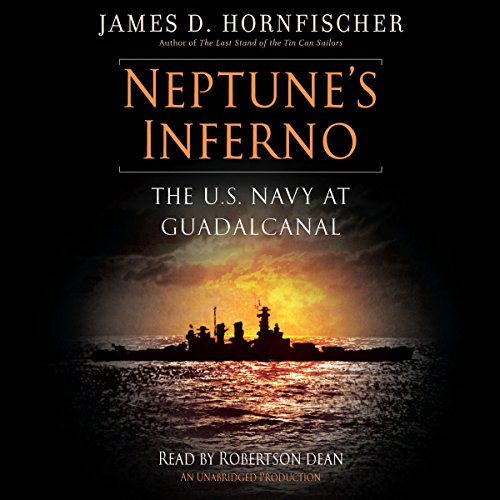
Neptune’s Inferno
By James D. Hornfischer
Wolf Melbourne: “Simply one of the best writers of history period, Hornfischer lays bare the human costs of not knowing or underestimating your adversary. Willful or not, ignorance and absence of knowledge of the adversary cost the U.S. Navy greatly in the Guadalcanal campaign of World War Two. Just a few short months after the victory at Midway, the U.S. Navy still did not understand Japanese doctrinal preference and proficiency at nighttime naval warfare and in their superior torpedoes. This led to horrendous losses at the battles of Savo Island and Tassafaronga. These insights into the Japanese adversary were in pre-war intelligence reports but were never filtered into the average tactical commander’s decision making. Naval intelligence professionals should use this history to justify expanding its role and responsibilities in the critical areas of training and planning.”
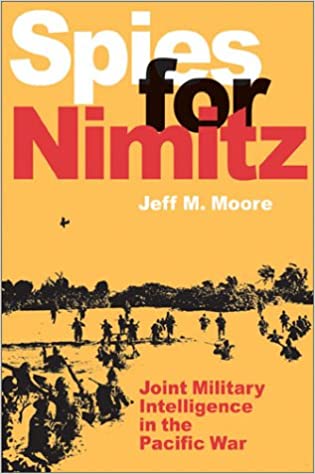
Spies for Nimitz
By Jeffrey M. Moore
In this book Jeffrey Moore profiles the history and select operations of America's first effective, all source, joint military intelligence agency. Known as JICPOA for Joint Intelligence Center, Pacific Ocean Areas, the agency's nearly two thousand specialists are credited with giving Admiral Nimitz the intelligence he needed to win the Pacific War. Moore explains how JICPOA evolved and reveals some new facts about the war as he assesses the impact of intelligence on eight amphibious campaigns in the islands of the Central Pacific. He also demonstrates timeless intelligence lessons, faulty versus effective intelligence techniques, and intelligence-operational planning integration--subjects that continue to be pertinent to today's military operations, including the war on terror.

G2: Intelligence for Patton
By Brig. Gen. Oscar Koch, USA
As the chief of intelligence (G2) for General George S. Patton Jr. during World War II, Koch’s journey takes the reader from the African campaign to Sicily, into France during Operation Overlord, and on to Germany’s counteroffensive at the Battle of the Bulge. General Koch codifies combat intelligence techniques “developed and applied” under General Patton’s command for application by future military intelligence professionals who endeavor to read his illuminating work and take his counsel to heart. Read the book review by Lieutenant Junior Grade Jason Arthur Spencer.
